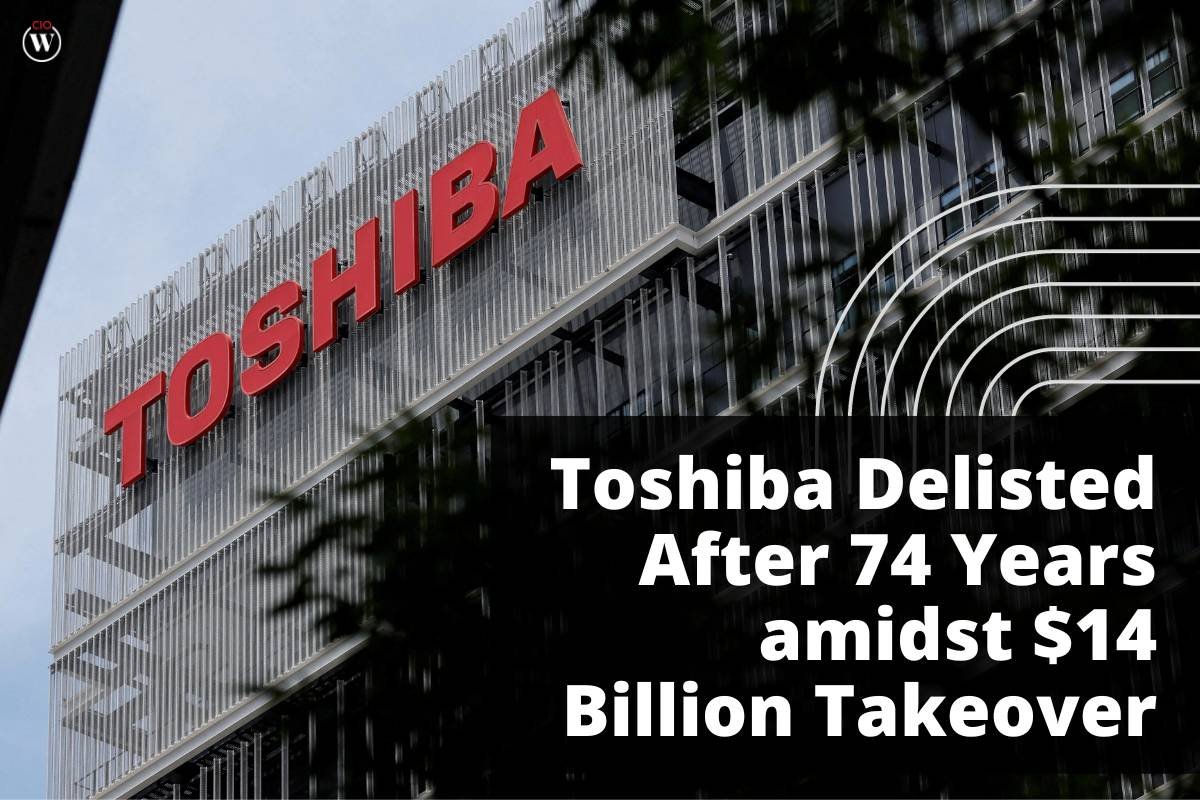Photo- reuters
Toshiba (6502.T), an iconic name on the Tokyo exchange for 74 years, faced a historic delisting on Wednesday, marking the end of an era characterized by a decade of turmoil and scandal. The move follows the conglomerate’s buyout, valued at $14 billion, led by private equity firm Japan Industrial Partners (JIP) and featuring financial services firm Orix (8591.T), utility Chubu Electric Power (9502.T), and chipmaker Rohm (6963.T). The decision to delist Toshiba comes after prolonged battles with overseas activist investors, ultimately resulting in the company being taken private by a consortium of domestic entities.
Uncertain Future under New Ownership
While Toshiba’s future under its new owners remains uncertain, the company assured stakeholders that it is embarking on a significant transformation with its change in shareholder structure. The delisting marks a crucial step towards a fresh start, according to a company statement, with the Company expressing gratitude for continuous understanding and support. The share price on the last trading day, Tuesday, concluded at 4,590 yen, indicating stability amid the significant corporate transition. Chief Executive Taro Shimada, retaining his position post-buyout, is expected to shift the company’s focus towards high-margin digital services.
Strategic Moves and Government Oversight
As Toshiba undergoes this transformative phase, industry insiders suggest that splitting up the conglomerate might be a strategic option. The uncertainties surrounding Toshiba’s fate have prompted various perspectives, with Damian Thong of Macquarie Capital Securities attributing the company’s difficulties to a mix of poor strategic decisions and unfortunate events.
The Japanese government, cognizant of Toshiba’s national importance and its 106,000 employees, will be closely monitoring the developments. JIP’s executives, along with representatives from Orix and Chubu Electric, will join the board, ushering in a new management team. To navigate its new trajectory, the organization has already initiated collaborations, teaming up with Rohm to invest $2.7 billion in manufacturing facilities for power chips. Experts emphasize the need for Toshiba to divest from lower-margin businesses and formulate robust commercial strategies for its advanced technologies to emerge as a key player in the evolving tech landscape.
As Toshiba bids farewell to the Tokyo exchange, the company and its stakeholders are now poised for a transformation that will shape its identity and impact in the years to come. The delisting and subsequent takeover signal a pivotal moment for Toshiba, as it navigates challenges, seizes opportunities and redefines its place in the rapidly evolving global market.









